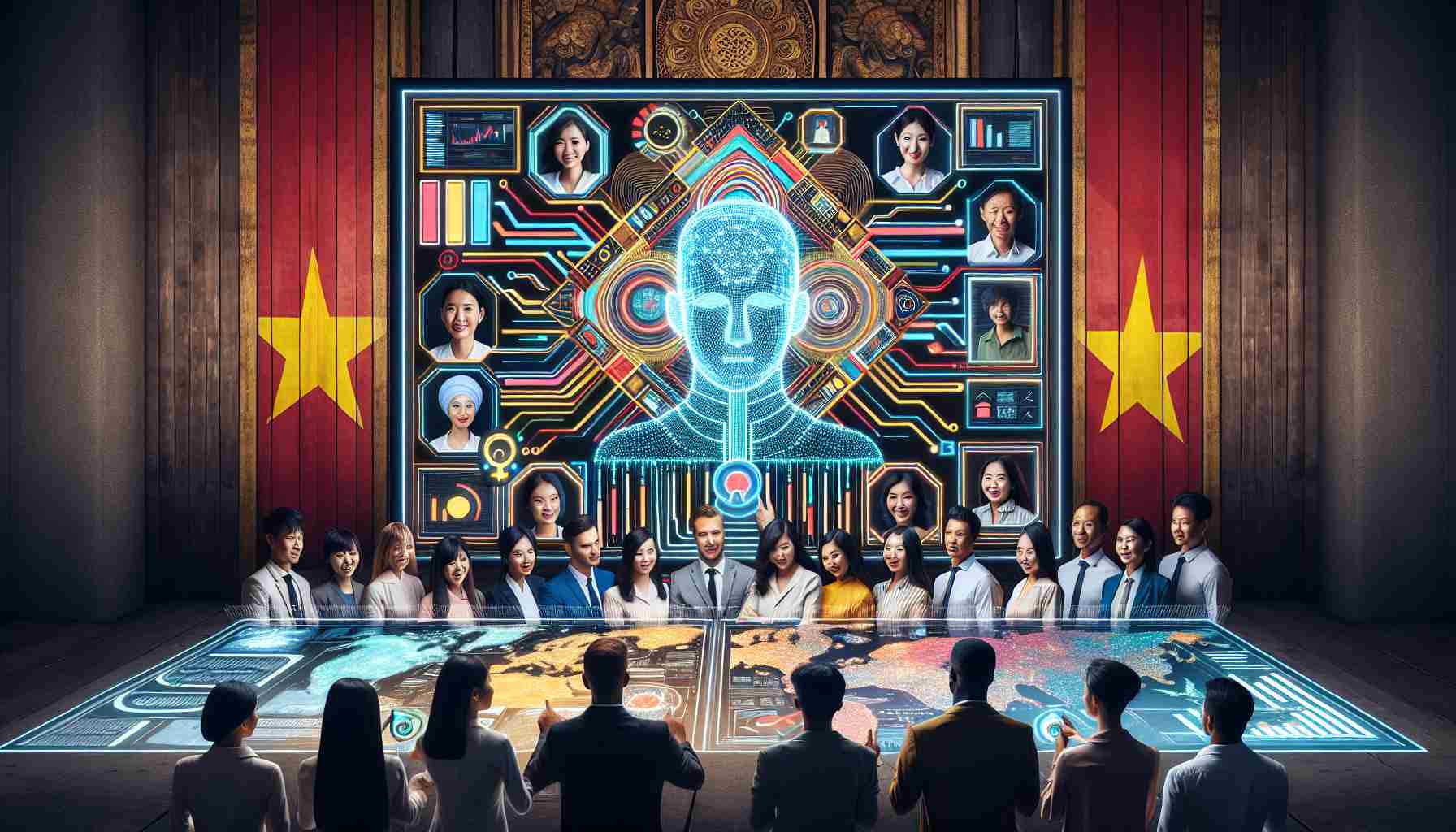Vietnam’s AI Ambitions: Training Students for a Tech-Driven Future
FPT University in Can Tho was buzzing with intellectual energy as industry leaders gathered to enlighten participants about the transformative impact of Artificial Intelligence (AI) on modern living and job markets. Details from the workshop reveal a compelling narrative about AI: its potential to boost efficiency in various industries, its capability to enhance medical diagnostics, and its remarkable influence on production automation.
However, these advancements come with crucial ethical considerations. AI’s growth kindles concerns regarding privacy, cybersecurity, and the authenticity of digital content—like the increasing sophistication of Deepfake technology that raises alarms over misinformation.
Leveraging AI for Learning While Encouraging Ethical Use
In a significant stride toward academic innovation, educators are looking at AI as a potent learning aid for students. Nonetheless, they advise caution, warning that overreliance on AI might impede creativity and critical thinking skills and potentially lead to academic dishonesty if misused in tasks like essay writing or solving homework assignments. The keynote speaker highlighted that integrating AI in education should be accompanied by ethical training to ensure responsible use and the cultivation of independent thinking.
AI in Demand: Career Opportunities Are Rising
Ambitious tech professionals can rejoice; the demand for AI-related jobs has surged by 74% annually over the past five years, with positions like AI engineers and data scientists becoming increasingly lucrative. Individuals with backgrounds in computer science, mathematics, and software development stand at a vantage point, often drawing salaries 30% above average.
Collaborating with technological experts, students and faculty delved into AI’s application in their studies and its risks. In this AI-driven ecosystem, students are encouraged to actively engage with AI education, seeking to guide rather than fear the technology.
FUNDGO Inspires Pioneering Ventures into AI
A representative from FUNDGO emphasized workforce efficiency gains in the gaming industry through AI integration. They inspired students to embrace research and training in this field, shaping the Mekong Delta not only as an agricultural haven but also as a future AI hub.
With the massive turnout, including high school seniors, the “Global AI Landscape and Career Opportunities for Students” seminar demonstrates the burgeoning interest in blockchain and AI. It marks the sixth installment of ABAII’s Unitour 2024, which aims to democratize knowledge in these fields among 100,000 students across Vietnam, offering 1,000 scholarships for the most passionate learners.
The article “Vietnam’s AI Ambitions: Training Students for a Tech-Driven Future” outlines efforts in Vietnam to integrate AI education and prepare its workforce for the challenges of a technologically-driven economy. Below, I’ve structured the additional relevant facts, important questions, key challenges and controversies around the topic, and the pros and cons, as requested.
Additional Relevant Facts:
– Vietnam is positioning itself as a key player in Southeast Asia’s tech industry, with the government launching the National Strategy on Research, Development and Application of Artificial Intelligence until 2030.
– Worldwide spending on AI systems is expected to continue its growth, which in turn fuels job creation and demand for AI professionals globally.
– AI offers potential for enhancing public services in Vietnam, including healthcare, education, and traffic management, through intelligent automation and data analysis.
Important Questions with Answers:
– Q: What industries in Vietnam might be most transformed by AI?
A: Besides tech, agriculture, manufacturing, healthcare, and logistics are key sectors in Vietnam that can significantly benefit from AI integration.
– Q: How is Vietnam ensuring the ethical use of AI?
A: Educators and policymakers stress the importance of including ethics in AI curriculum and promoting guidelines for responsible AI development and deployment.
– Q: What measures are being taken to prevent skill gaps in the AI fields?
A: Vietnam is investing in education and training programs, partnerships with industry experts, and providing scholarships to build a workforce skilled in AI and related technologies.
Key Challenges and Controversies:
– The ethical use of AI technology, including issues of privacy and data security, could become points of contention as the technology matures.
– The automation of jobs could lead to job displacement and require significant reskilling efforts for the existing workforce.
– Ensuring equitable access to AI education and avoiding the creation of a digital divide within the country remains a challenge.
Advantages and Disadvantages:
Advantages:
– AI can enhance efficiency and productivity across various sectors.
– It can create new job categories and career paths, particularly for tech-savvy youths.
– AI can assist in solving complex problems, including those related to climate change and public health.
Disadvantages:
– Automation may lead to job displacement in some traditional sectors.
– Overreliance on AI could hinder the development of critical thinking skills among students.
– There’s a risk of exacerbating inequalities if AI education and opportunities aren’t distributed equitably.
For those interested in further exploring insights on how AI is shaping job opportunities and education, consider visiting reputable sources such as:
– World Economic Forum: for their reports on AI and the future of jobs.
– UNESCO: for their initiatives on AI in education and ethics.
– MIT Technology Review: for the latest breakthroughs and discussions on AI technology and policy.
Note: Always ensure that the hyperlinks provided are correct and lead to the main domain of reputable and relevant organizations or institutions.

